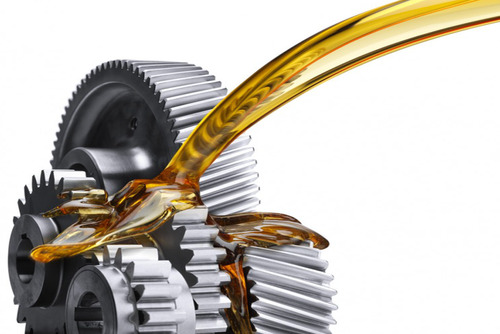Car/Vehicle Maintenance
Exclusive: What You Should Know About Topping Off Your Engine Oil

It’s a common sight on Nigerian roads: a driver pulls into a filling station, opens the bonnet, and gestures toward the attendant, “Abeg, top my oil small.”
Also Read: When should I change my engine oil?
Most drivers see it as routine, harmless even. But what few realize is that topping off engine oil can either keep your engine running smoothly or, if done carelessly, destroy it from the inside out.
Your car’s engine is a precision machine, a living system of pistons, bearings, valves, and seals, all moving thousands of times per minute.
Engine oil is its bloodstream. It lubricates, cools, cleans, and cushions. But misunderstanding how to maintain or “top off” this vital fluid has left countless Nigerian motorists stranded or worse, with seized engines.
This RoadKing.ng special report breaks down everything drivers need to know about topping off oil correctly the why, when, and how with practical guidance, local insight, and expert commentary from auto technicians across Nigeria.
What Does “Topping Off Engine Oil” Mean?
“Topping off” means adding small amounts of new engine oil to maintain the correct oil level between full oil changes. It doesn’t replace the oil, it simply replenishes what has been lost through evaporation, leaks, or normal consumption.
Engines burn or lose small amounts of oil over time. Depending on driving style, distance, and age of your vehicle, your oil level may drop slightly between service intervals.
If the level dips too low, friction increases, leading to overheating, accelerated wear, and potentially catastrophic engine damage.
Why You Might Need to Top Off
According to Toyota Nigeria’s service advisory, most modern engines naturally consume 0.5 to 1 litre of oil every 1,500–3,000 km, especially in hot climates like Nigeria’s.
The reasons include:
- High temperatures: Constant stop-and-go Lagos or Abuja traffic makes oil thinner and more volatile.
- Age of engine: Older engines tend to leak or burn oil faster.
- Heavy driving conditions: Towing, rough terrain, or long-distance travel accelerate oil loss.
- Poor maintenance: Dirty oil filters or worn piston rings increase oil consumption.
So, topping off isn’t just for mechanics, it’s something every responsible driver should know how to do safely.
How to Check If You Need to Top Off
Here’s the RoadKing-approved 5-Step Method to check your oil level accurately:
- Park on level ground and turn off the engine. Wait at least 5–10 minutes for the oil to settle.
- Open the bonnet and locate the dipstick (usually marked with a yellow or orange ring).
- Wipe it clean, reinsert it fully, then remove again to check the oil level.
- Observe the markings: the dipstick will have two lines — “MIN” and “MAX”. The oil should fall between them.
- Inspect oil condition: fresh oil is amber/golden; dark or sludgy oil means it’s overdue for replacement.
If the oil level is below the “MIN” line, you should top off immediately.
How to Top Off Properly (and Safely)
Follow these steps carefully, small mistakes can lead to serious consequences.
Step 1: Use the Correct Oil Type
Check your car manual for the recommended oil grade (e.g., 5W-30, 10W-40).
Using the wrong viscosity affects lubrication and engine efficiency.
When in doubt, use high-quality multi-grade synthetic oil suited for Nigeria’s climate.
Step 2: Add Small Amounts Gradually
Don’t pour straight from the container. Start with half a cup (about 100–150 ml), wait a few seconds, then recheck with the dipstick.
Add more if needed, but never exceed the “MAX” mark.
Step 3: Don’t Mix Oil Types Unnecessarily
Avoid mixing mineral and synthetic oils unless your manufacturer specifically allows it.
Different additives can react poorly, forming sludge or foam.
Step 4: Replace the Oil Cap Securely
After topping off, wipe any spills and tighten the oil cap. Leaving it loose lets dust and moisture enter, a silent killer for engines.
Step 5: Recheck After Driving
Drive for about 10 minutes, then recheck the dipstick. This ensures even distribution and confirms the correct level.
The Dangers of Overfilling
Overfilling is one of the most common, and least understood, causes of engine damage.
When you pour too much oil:
- Pressure increases, forcing oil into places it shouldn’t go.
- Foaming occurs, reducing lubrication and leading to dry friction.
- Seals may burst, causing leaks or gasket failure.
- Catalytic converters can become damaged from oil entering exhaust lines.
A 2024 study by the Automotive Council of Nigeria (ACN) found that 27% of private vehicles inspected in Lagos had oil levels above the safe limit, mainly due to excessive topping off at roadside stations.
“More oil doesn’t mean more protection,” warns Engr. Tunde Fajuyi, a mechanic at Ojota. “Once it’s above the mark, it’s dangerous. It can cook the engine from inside.”
Topping Off ≠ Changing Oil
This is where most drivers get it wrong. Topping off should never replace a full oil change.
Why? Because even though you add fresh oil, the old oil remains, along with all its contaminants, carbon, and metal debris.
Over time, topping without changing only dilutes dirty oil. It’s like adding clean water to muddy water, it might look better, but the dirt remains.
Experts recommend a full oil change every 5,000–8,000 km (or 3–6 months), depending on your car, oil type, and driving pattern.
Recognizing Warning Signs Before It’s Too Late
Watch for these indicators, they tell you it’s time to check or top off:
- Oil pressure light flashing on your dashboard.
- Ticking or knocking noises when starting the engine.
- Burning smell or smoke under the hood.
- Excessive engine heat or poor acceleration.
Ignoring these signs can lead to engine seizure, one of the costliest repairs, ranging from ₦700,000 to ₦3 million in parts and labour.
What Nigerian Drivers Get Wrong About Engine Oil
During RoadKing’s field interviews at filling stations in Lagos, Port Harcourt, and Abuja, 7 out of 10 motorists admitted they “just tell the attendant to add oil” without checking the level themselves.
Some common mistakes include:
- Assuming attendants know your car’s oil type — they often don’t.
- Using the wrong grade because “it’s what we have.”
- Adding oil after short trips — oil expands when hot, leading to false readings.
- Mixing random brands that clash chemically.
- Skipping oil filter replacements.
The result? Sludge buildup, reduced performance, and eventual engine failure.
The Cost of Negligence
When oil levels or quality are compromised, repair costs skyrocket.
Here’s what drivers stand to lose (2025 market estimates):
| Engine Issue | Cause | Average Repair Cost (₦) |
|---|---|---|
| Worn crankshaft bearings | Low oil | 450,000 – 800,000 |
| Piston seizure | Oil starvation | 700,000 – 1,200,000 |
| Blown gasket | Overfilled oil | 300,000 – 500,000 |
| Damaged catalytic converter | Oil contamination | 250,000 – 450,000 |
Regular topping and timely oil changes could prevent 90% of these failures.
The Science: Why Engines Burn Oil
Even healthy engines lose oil and that’s normal.
Combustion heat causes light oil fractions to evaporate, especially in tropical climates.
In older engines, piston rings and valve seals allow tiny oil particles into combustion chambers, which burn off unnoticed.
“When oil burns slightly, you might see faint smoke or smell exhaust,” explained Engr. Damilola Ajayi from Road Safety Vehicle Centre. “But if it burns fast — say, 1 litre every 1,000 km — that’s a mechanical fault.”
Pro Tips for Smart Drivers
RoadKing recommends these practical oil-maintenance hacks:
- Check your oil level every two weeks or before any long trip.
- Keep a half-litre bottle of your specific oil brand in your trunk.
- If you travel often between states, bring a small funnel and clean rag, don’t rely on random roadside tools.
- Always replace the oil filter with every second topping or oil change.
- Use oil-analysis kits (available at select service centres) to test for contamination.
Myth Busters: Common Oil Misconceptions in Nigeria
| Myth | Reality |
|---|---|
| “More oil = better lubrication.” | Overfilling causes foaming and pressure buildup. |
| “I can top with any brand, oil na oil.” | Mixing incompatible oils causes sludge and poor performance. |
| “New engines don’t consume oil.” | Even brand-new cars burn small amounts, especially under high load. |
| “Black oil means it’s bad.” | Not always, detergents in oil collect dirt; colour alone isn’t enough. |
| “Synthetic oil spoils engines.” | False, synthetic oils are cleaner and perform better in hot climates. |
Technician’s Corner: Local Expert Advice
RoadKing.ng spoke with experienced Lagos and Port Harcourt mechanics for practical insight.
Engr. Bala Mohammed, FRSC-certified technician (Kubwa, Abuja):
“Most cars in Nigeria run on low-quality oil for too long. Drivers say they ‘topped off’ but never drained old oil. That’s worse than not topping at all.”
Mrs. Ngozi Umeh, independent oil vendor (Port Harcourt):
“Many attendants pour oil without cleaning the funnel — sand and dust go straight into the engine. Always wipe before pouring.”
Engr. Kunle Olatunji, VIO consultant (Lagos):
“Don’t top oil when the engine is hot. Wait for 10 minutes; hot oil expands and can overflow.”
Environmental Impact: Where Used Oil Goes Matters
Each year, Nigeria generates over 100 million litres of used engine oil, much of which is dumped in drains or open landfills.
This practice contaminates soil and groundwater with heavy metals like lead and arsenic.
Responsible drivers and service stations should collect and dispose of used oil properly through licensed recycling facilities.
RoadKing Verdict: When to Top Off vs. When to Change
| Condition | Action |
|---|---|
| Oil level slightly below MIN | Top off with same oil type. |
| Oil dark, gritty, or smells burnt | Full oil change needed. |
| Oil loss > 1L per 1,000 km | Check for leaks or worn seals. |
| White smoke from exhaust | Engine burning oil – see mechanic. |
| Over 6 months since last change | Replace oil completely. |
Conclusion: Oil Is Cheap, Engines Aren’t
Topping off engine oil isn’t just maintenance; it’s life insurance for your car.
Done correctly, it can keep your vehicle running smoothly for years. Done wrongly, it can quietly destroy your engine.
In Nigeria, where high temperatures, fake products, and poor road conditions already push vehicles to their limits, smart oil management is not optional, it’s essential.
Remember the RoadKing mantra:
“Oil is the heart’s blood of your engine, respect it, and your car will respect you.”
So next time you hear, “Oga, make we top the oil?”
Pause, check your dipstick, and make the right choice.




























